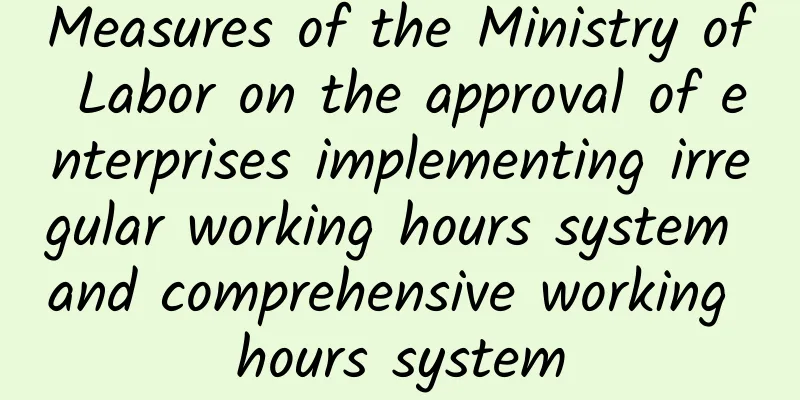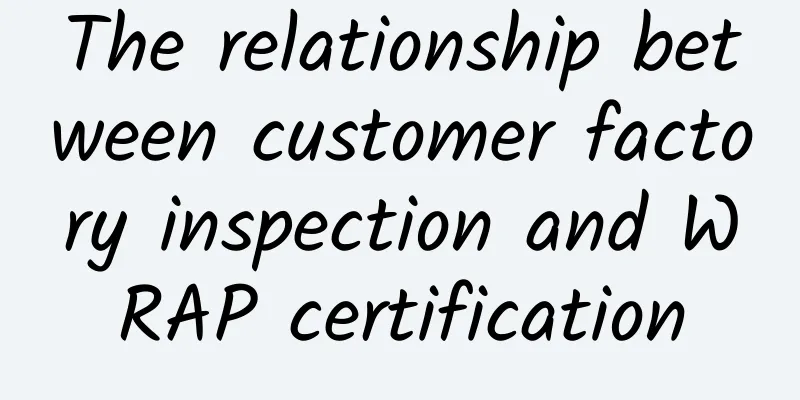Measures of the Ministry of Labor on the approval of enterprises implementing irregular working hours system and comprehensive working hours system

|
Article 1 These Measures are formulated in accordance with the provisions of Article 39 of the Labor Law of the People's Republic of China. The approval procedures for local enterprises to implement irregular working hours, comprehensive working hours calculation system and other work and rest methods shall be formulated by the labor administrative departments of the people's governments of provinces, autonomous regions, and municipalities directly under the Central Government and submitted to the labor administrative department of the State Council for the record. |
<<: EICC factory audit accident investigation and control
>>: Basic requirements of ISO9000 system certification family
Recommend
Shopee merchant store opening process
Shopee is the leading e-commerce platform in Taiw...
eBay overseas warehouse access rules in 2020~
eBay overseas warehouse access rules and regulati...
Ann Taylor Human Rights Factory Inspection Checklist
Ann Taylor Human Rights Factory Inspection Checkli...
Factory inspection, workshop preparation
1. Record requirements 1. All workshop document n...
Differences between TS16949 4th edition certification rules and 3rd edition
The fourth edition of the latest TS16949 certific...
Nanning seizes the opportunity to vigorously promote the development of cross-border e-commerce industry
In 2011, Nanning became one of the first 21 e-com...
Key points for special equipment factory inspection
Key points for factory inspection of special equi...
What are the main categories of products sold on eBay?
The products that eBay mainly sells are what cust...
What environmental issues should Disney factories pay attention to?
1. Does the factory discharge wastewater into sew...
What is the PMI index? What is the practical significance of the PMI index?
What is the PMI index? The full name of the PMI i...
What is NAFTA? What are the impacts of NAFTA?
What is NAFTA? The North American Free Trade Agree...
How is Snapdeal? Advantages of opening a store on Snapdeal platform
Snapdeal official website address: https://www.sn...
Best Buy - the world's largest home appliances and electronics retailer
Best Buy is the world's largest retail, distr...
Please look for the 3C certification mark when buying toys
The current international industry not only requir...
WRAP certification official website system upgrade
According to the official notice issued by WRAP, f...









